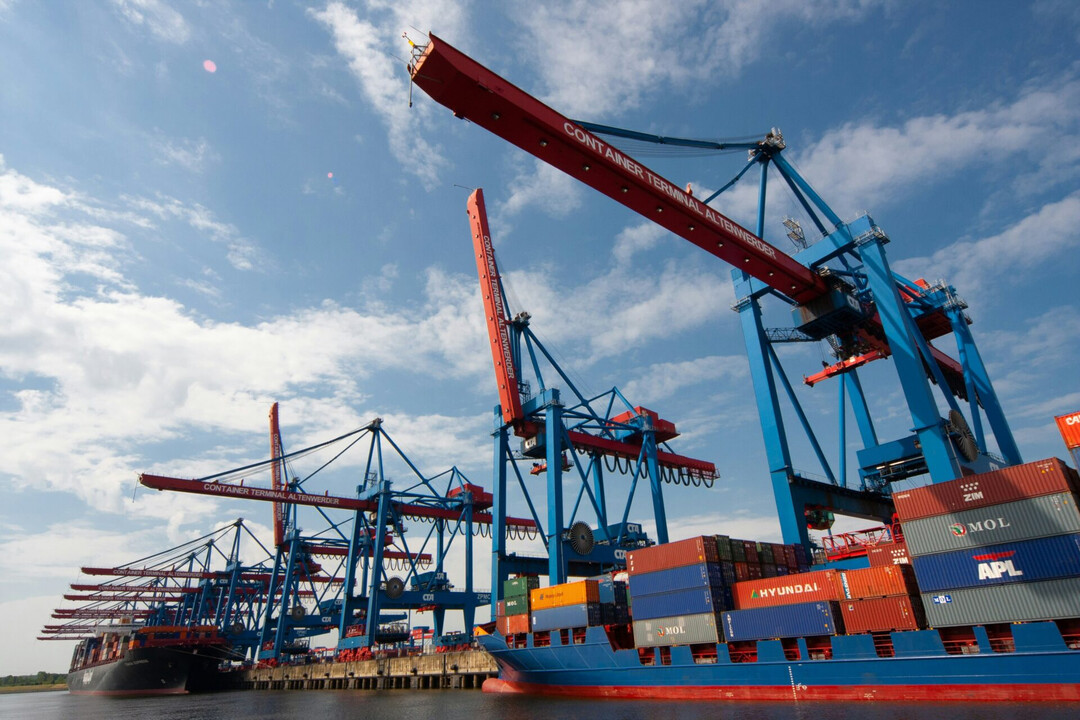
The intensifying tariff battle between the United States and China is wreaking havoc on global trade flows, leading to a precipitous decline in cargo shipments from China to the U.S. Reports indicate that cargo volumes have plummeted by as much as 45%, reflecting the profound uncertainty gripping trade operators as they navigate the volatile landscape of the ongoing trade dispute.
According to a recent report by the Financial Times (FT), both sea and air freight from China to the U.S. have experienced a sharp and alarming decrease, signaling that the economic fallout of the trade war is beginning to permeate the American economy. The U.S. government’s decision to impose a staggering 145% tariff on Chinese imports has triggered a seismic shift in container bookings, resulting in a dramatic reduction in shipments.
The Port of Los Angeles (LA), a critical gateway for Chinese goods entering the U.S., is bracing for a substantial decline in container arrivals. Projections indicate that the port will see a one-third reduction in container volumes during the week of June 4th compared to the same period last year. This sharp downturn underscores the immediate and tangible impact of the tariff war on key logistical hubs.
Supply chain intelligence firm Vizion has provided compelling data illustrating the severity of the situation. Their analysis reveals that 20-foot container bookings from China to the U.S. plummeted by 45% in mid-May compared to the previous year. This drastic reduction highlights the extent to which trade operators are scaling back their activities in response to the escalating tariffs.
John Denton, Secretary-General of the International Chamber of Commerce (ICC), attributes the sharp decline in U.S.-China cargo volume to the prevailing uncertainty surrounding potential tariff reduction agreements. He notes that businesses are delaying critical decisions as they await clarity on the future of trade relations between the two economic powerhouses.
An ICC survey of member companies across more than 60 countries has shed light on the long-term implications of the trade war. The survey, conducted in the wake of the U.S. tariff announcement, indicates that businesses anticipate a permanent disruption to trade flows, regardless of the outcome of future negotiations.
Denton warns that the cost of accessing the U.S. market is poised to reach its highest level since the 1930s. He asserts that, despite the prevailing uncertainty, there is a broad consensus among businesses that accessing the U.S. market will entail bearing at least a 10% tariff.
The potential for future negotiations is further exacerbating shipment delays. Nathan Strang, head of ocean freight at U.S. logistics group Flexport, notes that companies are resorting to stockpiling goods at both origin and destination points. He predicts that freight rates will surge if a tariff reduction agreement is reached, as pent-up demand is released.
U.S. importers are adopting a cautious approach, prioritizing the depletion of existing inventory before placing new orders from China. Some businesses are opting to store products in bonded warehouses or reroute shipments to neighboring countries like Canada in anticipation of tariff reductions.
The decline in cargo demand has also led to a surge in vessel cancellations. German container shipping line Hapag-Lloyd, a major player in the global shipping industry, reports a 30% cancellation rate for container bookings from China. Taiwanese container shipping company TS Lines has also suspended one of its Asia-U.S. West Coast routes due to reduced demand.
Maritime data analysis firm Sea-Intelligence reports a significant reduction in container bookings for Asia-North America routes. Their analysis indicates a 400,000 container reduction over a four-week period starting June 5th, underscoring the severity of the trade disruption.
The ongoing tariff war between the U.S. and China is having profound and far-reaching consequences for global trade. As businesses grapple with uncertainty and adjust their strategies, the economic impact of the trade dispute continues to unfold, with potentially long-lasting implications for both nations and the broader global economy.
소스 및 관련 콘텐츠
[Copyright (c) Global Economic Times. All Rights Reserved.]






























